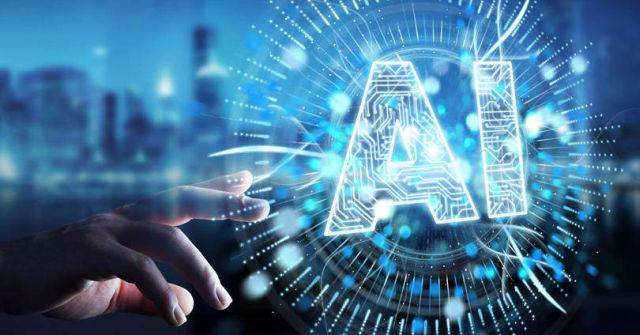
Why Vertical AI is emerging as the next big shift in the enterprise


In the last few years, most of the growth in artificial intelligence (AI) came from horizontal platforms—broad, general-purpose tools like chatbots, predictive analytics, and foundational models (from players such as OpenAI, Google, Microsoft, and AWS). These were designed to work across industries, giving enterprises the raw capability to build their own AI use cases.
However, the adoption is now shifting towards vertical AI – a new wave of artificial intelligence solutions designed for specific industries as enterprises are increasingly seeking sector-specific, ready-made AI solutions that offer rapid problem-solving and demonstrable ROI.
These specialised AI applications combine large language models (LLMs) but are tuned with domain-specific data, and unlike their general-purpose counterparts, Vertical AI solutions are being built to solve niche problems — designed for industries like healthcare, finance, agriculture, manufacturing, and logistics, among others.

The trend is not only here to stay, but is expected to accelerate, and significantly contribute to enterprise AI adoption globally, including in India, believe experts.
A narrowed-down approach
The global Vertical AI market is projected to reach $115.4 billion by 2034, expanding at a CAGR of 24.5% from 2025, according to industry estimates. The demand is being fuelled by enterprises seeking productivity gains, higher ROI, and solutions that go beyond workflow digitisation to decision-making and execution.
“Vertical AI is about fast deployment, lower costs, and clear, immediate value,” said Sanjay Dhawan, CEO of enterprise AI firm SymphonyAI. He noted that industries once considered tech-resistant, such as healthcare and law, are now embracing AI due to the efficiency gains.

For instance, in finance, these systems are already detecting fraudulent transactions. In manufacturing, predictive maintenance is reducing downtime and extending machine life. In the legal sector, AI is helping with compliance and discovery. Even recruitment is changing, with AI screening candidates, scheduling interviews, and addressing employee queries.
In human resources (HR), platforms like Deel are using AI to match candidates with roles and automate recruitment processes. “This is about embedding AI into existing technology to remove friction and free up human creativity,” said Alan Price, Global Head of Recruiting at Deel.
Vishal Chahal, Vice President, IBM India Software Labs, pointed out that advances in LLMs now allow AI to process unstructured data — contracts, records, and multimedia — enabling digital transformation of industries previously underserved by software. “The future of AI is specialised. General-purpose models may grab headlines, but the real value creation will happen at the intersection of AI and industry workflows,” he said.
Opening new opportunities

Industry experts see this trend opening new business models. Bessemer Venture Partners describes the landscape as moving from simple copilots that augment human workers to fully autonomous agents and eventually to AI-enabled services that compete directly with traditional providers.
While enterprise solutions such as SaaS largely relied on subscriptions, Vertical AI is gravitating toward usage- or output-based pricing. This means companies pay not for access to a tool, but for measurable results. “The addressable market is larger, the value capture is higher, and the defensibility comes from specialised data and workflows,” the Bessemer report said.
Indian firms riding the wave
Indian IT firms are also positioning themselves to ride the wave. “To create new value avenues, enterprises must ensure solutions are secure, enterprise-grade, and responsibly deployed with adequate guardrails,” said Kunal Purohit, President – Next Gen Services at Tech Mahindra. He, however, emphasised the need for companies to start small with pilot projects, clean and structure their data, and refine AI models before large-scale deployment.

India’s AI startup ecosystem is also maturing rapidly, as many are building sector-specific solutions that go beyond generic AI applications. In language and conversational AI, players like Sarvam AI and Ola Krutrim are creating India-centric large language models, while Haptik and Neysa power enterprise chatbots and cloud AI infrastructure.
In computer vision and robotics, Asteria Aerospace, Sastra Robotics, Lincode Labs, Addverb Technologies, and SigTuple are applying AI to drones, manufacturing, logistics, and healthcare diagnostics. Meanwhile, platforms like Yellow.ai, Uniphore, Locus, and Eightfold.ai are transforming customer engagement, last-mile logistics, and HR
On the whole, the rise of Vertical AI could mark the most exciting opportunity in enterprise software since the advent of cloud computing. By processing unstructured data, automating knowledge work, and delivering industry-specific intelligence, Vertical AI applications are poised to capture significantly more economic value than traditional software.

For enterprises and investors, the playbook is clear – marry technical excellence with domain expertise. The companies that crack this formula are likely to emerge as winners in the age of intelligent AI.
